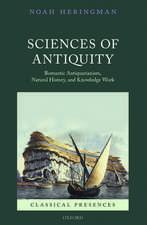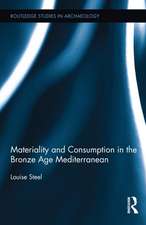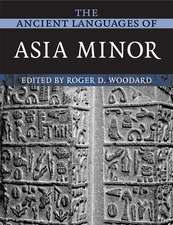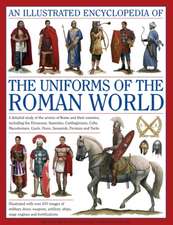Before Forgiveness: The Origins of a Moral Idea
Autor David Konstanen Limba Engleză Paperback – 29 apr 2012
| Toate formatele și edițiile | Preț | Express |
|---|---|---|
| Paperback (1) | 331.30 lei 43-57 zile | |
| Cambridge University Press – 29 apr 2012 | 331.30 lei 43-57 zile | |
| Hardback (1) | 689.09 lei 43-57 zile | |
| Cambridge University Press – 8 aug 2010 | 689.09 lei 43-57 zile |
Preț: 331.30 lei
Nou
Puncte Express: 497
Preț estimativ în valută:
63.41€ • 68.91$ • 53.30£
63.41€ • 68.91$ • 53.30£
Carte tipărită la comandă
Livrare economică 21 aprilie-05 mai
Preluare comenzi: 021 569.72.76
Specificații
ISBN-13: 9781107680203
ISBN-10: 1107680204
Pagini: 208
Ilustrații: black & white illustrations
Dimensiuni: 150 x 226 x 15 mm
Greutate: 0.3 kg
Editura: Cambridge University Press
Colecția Cambridge University Press
Locul publicării:New York, United States
ISBN-10: 1107680204
Pagini: 208
Ilustrații: black & white illustrations
Dimensiuni: 150 x 226 x 15 mm
Greutate: 0.3 kg
Editura: Cambridge University Press
Colecția Cambridge University Press
Locul publicării:New York, United States
Cuprins
1. What is forgiveness?; 2. Before forgiveness: Greeks and Romans on guilt and innocence; 3. Did they forgive? Greek and Roman narratives of reconciliation; 4. Divine absolution: the Hebrew and Christian bibles; 5. Humility and repentance: the church fathers; 6. Enter forgiveness: the self transformed.
Recenzii
Reviews of the hardback: 'Konstan's book is one of those studies that increases the reader's puzzlement and thus makes one seriously reflect on the subject-matter in question … Konstan's book is an indispensable survey for anyone dealing with ancient ethics, not least because of the wide range of texts it introduces and discusses. It can be seen as both an interesting and challenging contribution to contemporary discussion of the ancient inspiration for modern forms of virtue ethics.' Bryn Mawr Classical Review
'This volume makes for fascinating reading and is a remarkable scholarly achievement.' Notre Dame Philosophical Reviews
'… this is a thought-provoking work. The author is at his best in summarizing contemporary philosophical analysis of forgiveness as a concept, and in disabusing modern readers of reading 'forgiveness' into ancient texts.' Choice
'This book is nothing less than brilliant. Every one of its chapters contains a startlingly unexpected message, and the range of the book as a whole is enormous. At every point, David Konstan makes one think philosophically about different concepts and hence about the concept of forgiveness itself. The philosophical insight he provides is based on his perceptivity about an incredible range of texts.' Richard Sorabji, University of Oxford
'Konstan's magisterial grasp of the relevant texts and thinkers from the ancient Greek and Roman periods through early Christian and Judaic sources to the Church Fathers is extraordinary. Contemporary discussions of forgiveness often make a number of unexamined assumptions about the historical sources of this crucial moral idea … It turns out, in Konstan's view, that the modern notion of interpersonal forgiveness – and with it a supporting web of ideas about morality, the emotions, and the self – is of quite recent vintage. Konstan also sheds light on crucial modern treatments of the idea such as those found in Shakespeare, Molière, Butler, Kant, and Derrida, among others. His remarkable book will challenge readers to rethink their assumptions, and therefore to sharpen their answer to the much-debated question – what is forgiveness? – that lies at the heart of his inquiry.' Charles L. Griswold, Boston University
'This volume makes for fascinating reading and is a remarkable scholarly achievement.' Notre Dame Philosophical Reviews
'… this is a thought-provoking work. The author is at his best in summarizing contemporary philosophical analysis of forgiveness as a concept, and in disabusing modern readers of reading 'forgiveness' into ancient texts.' Choice
'This book is nothing less than brilliant. Every one of its chapters contains a startlingly unexpected message, and the range of the book as a whole is enormous. At every point, David Konstan makes one think philosophically about different concepts and hence about the concept of forgiveness itself. The philosophical insight he provides is based on his perceptivity about an incredible range of texts.' Richard Sorabji, University of Oxford
'Konstan's magisterial grasp of the relevant texts and thinkers from the ancient Greek and Roman periods through early Christian and Judaic sources to the Church Fathers is extraordinary. Contemporary discussions of forgiveness often make a number of unexamined assumptions about the historical sources of this crucial moral idea … It turns out, in Konstan's view, that the modern notion of interpersonal forgiveness – and with it a supporting web of ideas about morality, the emotions, and the self – is of quite recent vintage. Konstan also sheds light on crucial modern treatments of the idea such as those found in Shakespeare, Molière, Butler, Kant, and Derrida, among others. His remarkable book will challenge readers to rethink their assumptions, and therefore to sharpen their answer to the much-debated question – what is forgiveness? – that lies at the heart of his inquiry.' Charles L. Griswold, Boston University
Notă biografică
Descriere
David Konstan argues that the modern concept of interpersonal forgiveness, in the full sense of the term, did not exist in ancient Greece and Rome.














